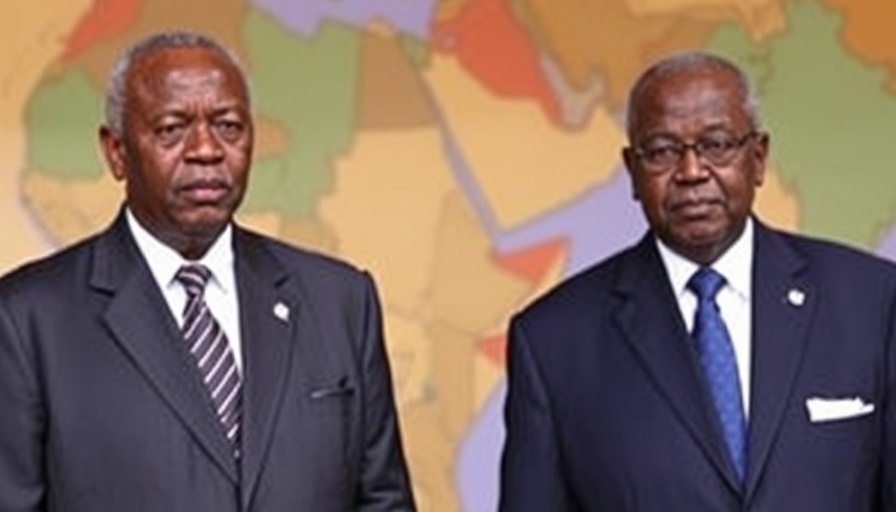
AU Mediators Arrive in South Sudan: A Critical Diplomatic Mission
In a crucial effort to salvage peace in South Sudan, African Union (AU) mediators landed in the capital, Juba, on Wednesday, following the recent house arrest of First Vice President Riek Machar. As tensions escalate, the AU's "Council of the Wise," including notable figures like former Kenyan judge Effie Owuor and former Burundian President Domitien Ndayizeye, pledges to avert a looming civil conflict, exacerbated by Machar's political detainment.
Race Against Time: Outcomes of the Current Political Landscape
President Salva Kiir’s government has accused Machar of attempting to incite new violence akin to the devastating civil war that spanned from 2013 to 2018. This earlier conflict, predominantly fueled by ethnic divisions—between the Dinka, loyal to Kiir, and the Nuer, supporting Machar—resulted in catastrophic loss of life and widespread displacement. The AU’s involvement underscores the urgent need for stable governance amid rising discontent within Kiir’s political faction and a deteriorating security situation, largely influenced by the ongoing war in neighboring Sudan.
International Attention on South Sudan: The Role of Regional Diplomacy
The implications of internal strife extend beyond South Sudan’s boundaries, affecting regional stability and foreign investments. The AU's call for Machar’s immediate release highlights the intricate dynamics of African politics and the necessity of preserving diplomatic channels. Kenya's former Prime Minister, Raila Odinga, has already attempted to mediate the situation, reflecting an increasing urgency from neighboring nations to stabilize a country pivotal for African trade routes.
The Broader Picture: Geopolitical Stakes in Africa
As the AU strives for peace, the global economy watches closely. Political instability disrupts trade, affects financial markets, and could derail growth prospects in Africa's evolving digital economy. Investors are keenly observing how the AU and regional leaders navigate this crisis. Outcomes here may set precedents for governance and diplomatic relations across the continent, influencing everything from international trade policies to Africa's role in global markets.
Take Action: Following the Developments in South Sudan
For policymakers and business leaders, staying informed on the developments in South Sudan is paramount. Understanding how these negotiations unfold will guide strategic decisions and economic investments in a region rich with potential but fraught with challenges. A stable South Sudan could transform into a vital economic corridor, unlocking new opportunities across the continent.
 Add Row
Add Row  Add
Add 


Write A Comment